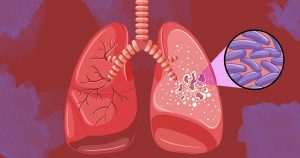University of São Paulo: Groundbreaking Law Seeks to Stimulate Medicine Production for Neglected Diseases
President Luiz Inácio Lula da Silva has signed a law requiring public laboratories to invest in the production of active ingredients for medicines aimed at combating socially determined diseases, such as dengue fever, malaria, tuberculosis, viral hepatitis, leprosy, leishmaniasis, schistosomiasis and Chagas disease. These diseases, although preventable and controllable and should have been contained by now, continue to affect a large portion of the population, especially in more vulnerable regions, due to insufficient public prevention and treatment actions.
The measure seeks to correct a historical gap, in which the lack of adequate investment in local drug production has left Brazil dependent on imports and reduced its ability to respond to outbreaks and epidemics. The new law aims to strengthen the country’s autonomy in the production of essential drugs, reducing the population’s vulnerability to these diseases, which have severe impacts on public health and are often associated with poor sanitation, housing and access to health services.
Neglected diseases
Fernando Aith, a professor at the School of Public Health (FSP) at the University of São Paulo, highlighted that the new law aims to combat neglected diseases, which are endemic in low- and middle-income countries, such as Brazil. “They are sometimes known as so-called tropical diseases. These are diseases that have unacceptable indicators in our country, an upper-middle-income country that could have practically eliminated many of them, and reduced investments in research, drug production and control of these diseases,” he says.
The expert explains that the bill includes several drugs that already exist and technologies that have already been invented, but that the large global pharmaceutical industry has no interest in their production and distribution on a large scale, since those who need them are people in poor countries. Thus, this places the responsibility on the shoulders of public laboratories.
He adds: “Our laboratories, whether public or private, either do not have the capacity to produce or do not have the economic interest in producing either. So, this law is pointing in the right direction, which is to make our national public laboratories invest in the production of active ingredients and drugs to deal with these diseases that mainly affect our population and the population of our neighboring countries.”
New Legal Framework
With the new legislation, Brazilian laboratories that already have the necessary capacity will be required to invest in the development and production of active ingredients and drugs used to treat these diseases. However, not all of them are ready to meet the demand: “We have some cutting-edge laboratories, such as Fiocruz and the Butantan Institute, but many others are not as developed and have not invested in as much technology. The law requires that agreements be made, either with public laboratories, which are at the forefront, or with national or international private laboratories that can transfer technology in the short or medium term, so that, in the end, these laboratories are already prepared.”
According to Aith, Brazil has a very large scientific capacity, training professionals who will be able to develop new drugs to treat these diseases, or to develop technologies that have already been invented, many of which have already lost their patents. “We have these human resources and many of them end up leaving the country and going to work in public and private laboratories in developed countries, in large economic centers such as the United States and Europe, which end up taking our technicians, our brains in this area of biological pharmacochemistry, abroad. If we have an investment within the country for the production of these products in well-structured laboratories, I am sure that we will be able to fully develop this policy designed in the recently approved law.”
The professor also recalled that the COVID-19 pandemic exposed Brazil’s vulnerability in terms of the production of supplies and medicines. “We have to learn from this and take the necessary measures to ensure that this does not happen again, whether in an epidemic, pandemic or for endemic diseases, which is the purpose of this law. We are not able to cope not because of technical and scientific insufficiency, but because of insufficient funding, resources and a national industrial policy. We need to continue monitoring the issue to see if these good intentions will be subject to adequate funding so that this can effectively happen,” he concluded.

